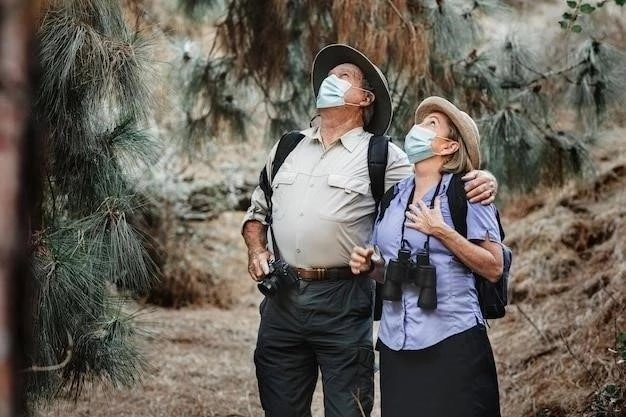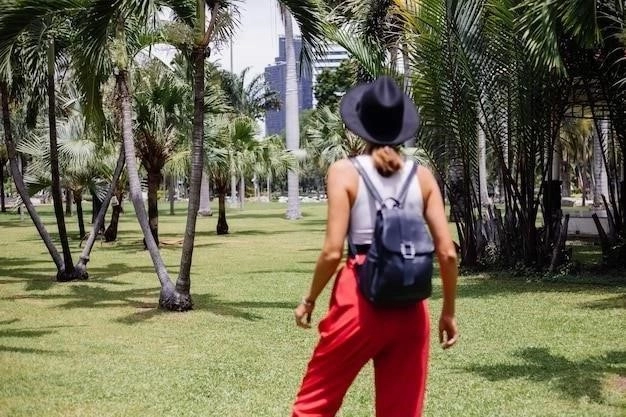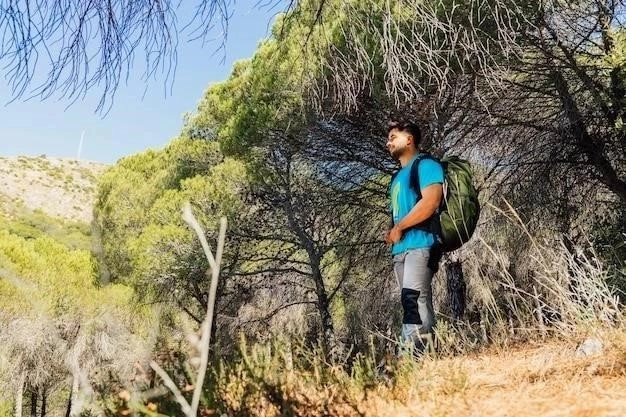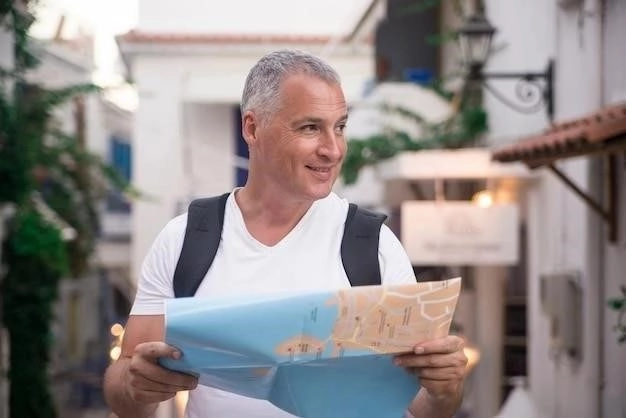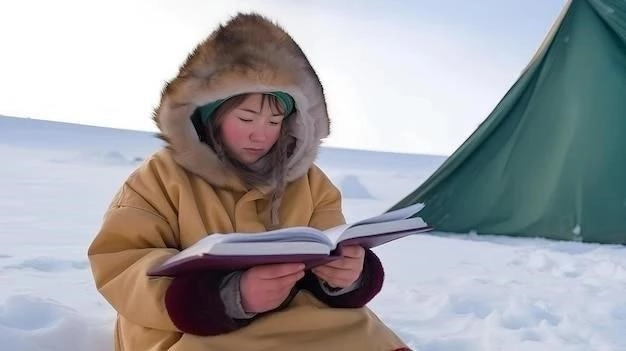Malawi, fondly known as the “Warm Heart of Africa,” beckons travelers with its stunning landscapes, vibrant culture, and the captivating Lake Malawi. Whether you’re seeking adventure in national parks teeming with wildlife, relaxation on idyllic beaches, or a glimpse into the heart of Africa, Malawi promises an unforgettable journey.
Planning Your Trip
A well-structured itinerary is key to maximizing your experience in the “Warm Heart of Africa.” Below are some essential aspects to consider when planning your trip to Malawi:
Determine Your Interests:
Malawi offers a diverse range of experiences. Are you captivated by wildlife encounters in national parks like Majete and Nyika? Does the allure of Lake Malawi’s pristine beaches and watersports entice you? Or do you yearn to immerse yourself in the warmth of Malawian culture and heritage? Identifying your priorities will guide your itinerary choices.

Best Time to Visit:
Malawi boasts year-round appeal, but the optimal time to visit depends on your preferences. For optimal wildlife viewing, consider the dry season (May to October) when animals congregate around water sources. If you’re a diving enthusiast, the warmer waters from September to November offer excellent visibility.
Visa and Entry Requirements:
Ensure you possess a valid passport with at least six months of validity remaining beyond your intended stay. While citizens of many countries can obtain visas upon arrival, it’s advisable to check the latest visa regulations beforehand.
Health Preparations:
Consult your healthcare provider regarding recommended vaccinations and malaria prophylaxis. It’s essential to pack insect repellent, sunscreen, and a basic medical kit.
Currency Exchange:
The Malawian Kwacha (MWK) is the official currency. US dollars are widely accepted, and credit card facilities are available in larger establishments.
Local Transportation:
Explore local transportation options, including car rentals, private transfers, minibuses, and domestic flights, to determine the most suitable mode for your itinerary.
Accommodation:
Malawi offers a range of accommodations, from charming guesthouses and eco-lodges to comfortable hotels. Booking in advance is recommended, especially during peak seasons.

Visas and Entry Requirements
To ensure a seamless entry into Malawi, it’s essential to familiarize yourself with the latest visa regulations and requirements. Please note that visa policies are subject to change, so verifying the most up-to-date information with the nearest Malawian embassy or consulate is crucial before your departure.
Visa Requirements:
Citizens of many countries are eligible for a visa upon arrival in Malawi. This visa typically grants a stay of up to 30 days. However, it’s essential to confirm your nationality’s specific requirements. To obtain a visa upon arrival, you’ll generally need:
- A valid passport with at least six months of validity remaining beyond your intended stay.
- Evidence of sufficient funds to cover your expenses while in Malawi.
- A return or onward ticket.
- A visa fee, payable in US dollars or the equivalent in other major currencies.
Visa Extensions:
If you wish to extend your stay beyond the initial 30 days, you can apply for a visa extension at the Immigration Department in Lilongwe. It’s recommended to apply for an extension well in advance of your visa’s expiry date.
Exemptions:
Citizens of certain countries may be exempt from visa requirements for short stays. Please consult with the Malawian embassy or consulate in your home country for a comprehensive list of exempt nationalities.
By ensuring you have the necessary documentation and understanding of visa regulations, you can embark on your Malawian adventure with ease and confidence.
Best Time to Visit
Malawi, with its subtropical climate, welcomes travelers year-round, each season offering a unique perspective on this captivating country. Deciding on the ideal time for your visit depends on your priorities and preferred experiences.
Dry Season (May to October):
Considered the most popular time to visit, the dry season boasts clear skies, pleasant temperatures, and minimal rainfall. This period offers optimal conditions for wildlife viewing as animals congregate around water sources, making it ideal for safari enthusiasts. Hiking and trekking trails are also at their most accessible during these months.
Shoulder Seasons (April & November):
These transitional months offer a balance of favorable weather and fewer crowds. Expect occasional showers, lush landscapes, and pleasant temperatures for outdoor activities. Accommodation rates may be lower compared to the peak season.
Green Season (December to March):
While characterized by rainfall, the green season unveils a different side of Malawi’s beauty. Landscapes transform into vibrant tapestries of green, and birdlife is at its most prolific. This period is ideal for budget travelers seeking lower accommodation rates and a tranquil ambiance.
Key Considerations:
- For optimal wildlife viewing and hiking, prioritize the dry season (May to October).
- If you prefer a balance of pleasant weather and fewer crowds, consider the shoulder seasons (April & November).
- Embrace the lush landscapes and lower prices of the green season (December to March), but be prepared for rainfall.
Ultimately, the best time to visit Malawi depends on your individual preferences and desired experiences. With careful planning, you can enjoy the “Warm Heart of Africa” in any season.
Getting There and Around
Navigating Malawi’s diverse landscapes is an integral part of experiencing the “Warm Heart of Africa.” Whether you prefer air travel for efficiency or ground transportation for a more immersive journey, various options cater to different preferences and budgets.
Arrival by Air:
Lilongwe’s Kamuzu International Airport (LLW) serves as the main international gateway to Malawi. Several major airlines operate flights connecting Lilongwe to major hubs in Africa and beyond. Upon arrival, taxis and private transfers are readily available for onward travel to your chosen destination.
Domestic Flights:
For efficient travel between major cities and tourist hubs, domestic airlines offer regular flights. This option is particularly convenient for reaching remote destinations or maximizing your time in Malawi.
Road Travel:
Malawi’s road network has improved significantly in recent years, offering scenic routes for exploration. Car rentals are available for those seeking flexibility and independence, but it’s advisable to hire a 4×4 vehicle for accessing certain areas, particularly during the rainy season.
Minibuses:
For budget-conscious travelers, minibuses provide an affordable and authentic way to traverse the country. These privately operated vans connect towns and cities, offering an opportunity to interact with locals and experience the rhythm of Malawian life.
Boat Travel:
Lake Malawi, the jewel of Malawi, is also a vital transportation artery. Passenger ferries and cargo boats connect lakeshore towns and villages, offering a scenic and leisurely mode of travel. Private boat charters are available for those seeking a more exclusive experience.
Accommodation
Malawi offers a diverse range of accommodations to suit every traveler’s style and budget, from intimate guesthouses exuding local charm to upscale lodges nestled in pristine nature reserves. Choosing the right accommodation can enhance your experience and provide a comfortable base for exploring the “Warm Heart of Africa.”
Lodges and Resorts:

For an immersive experience in nature, consider luxury lodges and resorts often located within or near national parks and wildlife reserves. These establishments typically offer upscale amenities, including swimming pools, gourmet dining, and guided safari excursions.
Guesthouses and Boutique Hotels:
Experience Malawian hospitality at its finest in charming guesthouses and boutique hotels. These options provide personalized service, comfortable rooms, and often feature locally inspired décor and cuisine. They are ideal for travelers seeking an authentic and intimate atmosphere.
Backpacker Hostels:
Budget-conscious travelers will find a welcoming and social atmosphere in Malawi’s backpacker hostels. These establishments offer dormitory-style rooms or private rooms at affordable rates, often with communal kitchens and common areas for socializing.
Camping:
Embracing Malawi’s natural beauty is best done through camping. Many national parks and reserves offer designated campsites, allowing travelers to sleep under the stars and awaken to the sounds of nature.
Booking in Advance:
Especially during peak season (May to October), booking accommodation in advance is highly recommended. This ensures availability and secures the best rates. Many establishments offer online booking facilities for convenience.

Health and Safety
Prioritizing your well-being is paramount when traveling to Malawi. While the “Warm Heart of Africa” is generally a safe and welcoming destination, taking necessary precautions ensures a healthy and enjoyable trip.
Before You Go:
- Consult your healthcare provider regarding recommended vaccinations and malaria prophylaxis well in advance of your departure.
- Pack a comprehensive medical kit containing essential medications, insect repellent, sunscreen, and first-aid supplies.
- Review your travel insurance policy to ensure adequate coverage for medical emergencies, evacuation, and trip cancellation.
Health Precautions:
- Drink bottled water and avoid consuming ice from unknown sources to prevent waterborne illnesses.
- Take precautions against mosquito bites by using insect repellent, wearing long-sleeved clothing, and sleeping under mosquito nets, especially in malaria-prone areas.
- Consume food from reputable establishments and ensure it is thoroughly cooked to minimize the risk of food poisoning.
Safety Tips:
- Exercise caution with your belongings, especially in crowded areas, and avoid displaying large amounts of cash or expensive jewelry.
- Only use official taxis or reliable transportation services, and avoid traveling alone at night, especially in unfamiliar areas.
- Respect local customs and traditions. Dress modestly, especially when visiting religious sites.
- Be aware of your surroundings and trust your instincts. If a situation feels unsafe, remove yourself from it immediately.
By adhering to these health and safety recommendations, you can focus on enjoying the beauty and hospitality of Malawi while minimizing potential risks.
Money and Costs
Understanding Malawi’s currency and typical costs is essential for budgeting effectively and ensuring a smooth travel experience in the “Warm Heart of Africa.” While Malawi offers affordability compared to many other tourist destinations, being mindful of your spending will help you maximize your budget.
Currency:
The official currency of Malawi is the Malawian Kwacha (MWK). While US dollars are widely accepted, it’s generally advisable to exchange your currency for Kwacha upon arrival for more favorable exchange rates and ease of transactions.
Cash vs. Cards:
Malawi is primarily a cash-based society, especially outside major cities and towns. Credit cards are accepted at larger hotels, restaurants, and supermarkets, but it’s wise to carry sufficient cash for smaller establishments, local markets, and transportation.
ATMs:
ATMs are available in major towns and cities, but their reliability can be inconsistent. It’s recommended to withdraw a sufficient amount of cash when the opportunity arises, particularly if traveling to more remote areas.
Typical Costs:
Accommodation, transportation, and food expenses in Malawi are relatively affordable, particularly for budget travelers. However, costs can vary significantly depending on your chosen level of comfort and dining preferences. As a general guideline:
- Budget: Allow around $30-50 per day for basic accommodation, local transportation, and meals at modest eateries.
- Mid-range: Expect to spend $50-100 per day for comfortable accommodation, occasional restaurant meals, and domestic transportation.
- Luxury: For upscale lodges, fine dining experiences, and private transportation, budget upwards of $100 per day.
Things to Do
Malawi, the “Warm Heart of Africa,” pulsates with a vibrant energy, offering a rich tapestry of experiences for every traveler. From thrilling wildlife encounters to serene lakeside retreats, the country’s diverse landscapes and cultural heritage promise an unforgettable journey.
Explore Lake Malawi:
No trip to Malawi is complete without experiencing the splendor of Lake Malawi, the third largest lake in Africa. Indulge in a plethora of water-based activities, from leisurely cruises and kayaking adventures to exhilarating scuba diving and snorkeling amidst colorful cichlid fish.
Embark on a Wildlife Safari:
Malawi’s national parks and reserves are teeming with wildlife, offering exceptional opportunities for game viewing. Witness elephants roaming freely in Liwonde National Park, track leopards in Majete Wildlife Reserve, or marvel at the diversity of birdlife in Nyika National Park.
Immerse in Culture:
Engage with the warmth of Malawian culture by visiting local villages, attending traditional dance performances, and exploring vibrant markets. Learn about the country’s rich history and heritage at museums and historical sites.
Hike and Trek:
Challenge yourself with scenic hikes and treks through Malawi’s breathtaking landscapes. Conquer Mount Mulanje, the highest peak in southern Central Africa, or embark on a multi-day trek through the rolling hills of the Zomba Plateau.
Relax and Unwind:
Escape to the tranquility of Lake Malawi’s pristine beaches, where you can unwind in idyllic surroundings. Indulge in freshly caught fish, soak up the sun, and enjoy the slow pace of life.
Lake Malawi
Often referred to as the “Lake of Stars,” Lake Malawi is the undisputed jewel of Malawi, captivating visitors with its shimmering waters, pristine beaches, and an underwater world teeming with life. Whether you seek adventure, tranquility, or a glimpse into the heart of Africa’s aquatic wonders, Lake Malawi promises an unforgettable experience.
A Diver’s Paradise:
Lake Malawi boasts exceptional freshwater diving and snorkeling opportunities, renowned for its remarkable clarity and diversity of fish species. Explore submerged rock formations, encounter colorful cichlids, and witness the graceful movements of freshwater crabs and snails.
Watersports and Recreation:
From exhilarating windsurfing and kitesurfing to leisurely kayaking and paddleboarding, Lake Malawi offers a playground for water sports enthusiasts of all levels. Explore secluded coves, navigate the open waters, or simply bask in the sun on a traditional wooden dhow.
Island Hopping and Exploration:

Discover the charm of Lake Malawi’s islands, each offering a unique character and allure. Relax on the pristine beaches of Likoma Island, home to a historic cathedral, or venture to the remote shores of Mumbo Island, renowned for its unspoiled beauty and eco-friendly accommodations.
Lakeside Relaxation:
Unwind on golden sands, soak up the sun, and savor the tranquil ambiance of Lake Malawi’s shores. Numerous lodges and resorts offer idyllic settings for relaxation, with stunning lake views, swimming pools, and opportunities for lakeside dining.
Wildlife
Malawi, though small in size, boasts a remarkable diversity of ecosystems, making it a haven for wildlife enthusiasts. From the iconic “Big Five” to an array of birdlife, encountering Malawi’s wildlife in their natural habitat is an experience that will stay with you long after you’ve left the “Warm Heart of Africa.”
National Parks and Reserves:
Malawi is home to several well-managed national parks and reserves, each offering a unique perspective on the country’s biodiversity. Liwonde National Park, renowned for its elephant populations and successful rhino translocation, provides exceptional game viewing opportunities. Majete Wildlife Reserve, once nearly depleted of wildlife, has made a remarkable recovery, now boasting healthy populations of lions, elephants, and leopards.
Avian Wonders:
Birdwatchers will delight in Malawi’s rich avian diversity, with over 700 bird species recorded. Liwonde National Park teems with waterbirds along the Shire River, while Nyika National Park’s montane grasslands harbor endemic species.
Primate Encounters:
Malawi is home to various primate species, including baboons, vervet monkeys, and the elusive nocturnal galago, often spotted in forested areas.
Responsible Wildlife Tourism:
Supporting conservation efforts is paramount when experiencing Malawi’s wildlife. Choose lodges and tour operators committed to responsible tourism practices, such as minimizing their environmental impact and supporting local communities.
Culture and Heritage
Malawi, aptly nicknamed the “Warm Heart of Africa,” is as much about its people and their captivating culture as it is about its stunning landscapes. Immerse yourself in the warmth of Malawian hospitality, delve into its rich history, and discover the traditions that shape this vibrant nation.
A Nation of Warmth:
Malawians are renowned for their genuine friendliness and welcoming nature. Engage with locals, share stories, and experience the true meaning of “Ubuntu” – the interconnectedness of humanity. A simple “moni” (hello) or “zikomo” (thank you) in the local Chichewa language goes a long way in connecting with the heart of Malawi.
Vibrant Traditions:

Malawi’s cultural heritage is woven into the fabric of everyday life. Witness traditional dances, vibrant ceremonies, and colorful attire that reflect the country’s diverse ethnic groups. Attend a local festival or event to immerse yourself in the rhythm and spirit of Malawian culture.
Historical Insights:
Delve into Malawi’s past by exploring historical sites and museums. Visit the Chongoni Rock Art Area, a UNESCO World Heritage Site showcasing ancient rock paintings, or explore the Lake Malawi Museum in Mangochi, offering insights into the lake’s history and ecology.
Artistic Expressions:
Discover Malawi’s vibrant arts and crafts scene, where skilled artisans create intricate woodcarvings, colorful textiles, and unique pottery. Visit local markets or craft shops to find authentic souvenirs and support local communities.
Hiking and Trekking
Malawi’s dramatic landscapes, ranging from towering mountains to undulating plateaus, provide a breathtaking backdrop for unforgettable hiking and trekking experiences. Whether you seek a challenging summit climb or a leisurely stroll through scenic trails, Malawi offers something for every adventure level.
Mount Mulanje:
Rising majestically from the surrounding plains, Mount Mulanje, the highest peak in southern Central Africa, presents an irresistible challenge for seasoned hikers. Explore its dramatic peaks, verdant valleys, and cascading waterfalls on multi-day treks, camping amidst breathtaking scenery.
Zomba Plateau:
Escape to the cool heights of the Zomba Plateau, where gentle trails meander through forests, past hidden waterfalls, and offer panoramic views of the surrounding plains. Opt for a leisurely hike or a more challenging multi-day trek, enjoying the tranquility of nature.
Nyika National Park:Combine wildlife viewing with invigorating hikes in Nyika National Park, where rolling grasslands and montane forests provide a stunning backdrop for exploring on foot. Spot wildlife, discover hidden waterfalls, and immerse yourself in the park’s serene ambiance.
Essential Tips:
- Pack for all weather conditions, as mountain weather can be unpredictable.
- Wear sturdy hiking boots and comfortable clothing.
- Carry sufficient water, snacks, and a first-aid kit.
- Inform someone of your planned route and expected return time.
- Consider hiring a local guide for longer or more challenging treks.
Festivals and Events
Malawi’s cultural calendar is punctuated by vibrant festivals and events that showcase the country’s rich heritage, artistic spirit, and zest for life. Attending one of these celebrations offers a unique opportunity to immerse yourself in the “Warm Heart of Africa” and experience the rhythm of Malawian culture.
Lake of Stars Festival:
Held annually on the shores of Lake Malawi, the Lake of Stars Festival is a renowned music and arts extravaganza attracting international and local artists. Dance to diverse musical genres, witness captivating performances, and embrace the electric atmosphere of this highly anticipated event.
Mulanje Mountain Festival:
Celebrate the beauty and biodiversity of Mount Mulanje at this annual festival, featuring hiking expeditions, mountain bike races, cultural performances, and environmental awareness initiatives.
Zomba City Festival:
Immerse yourself in the cultural tapestry of Zomba City during this vibrant festival, showcasing traditional dances, music performances, art exhibitions, and culinary delights. It’s a fantastic opportunity to experience the city’s creative spirit and rich heritage.
Cultural Celebrations:
Throughout the year, various cultural events and traditional ceremonies take place across Malawi, offering insights into local customs and beliefs. Inquire about local celebrations happening during your visit for a chance to witness the authenticity of Malawian traditions.

Food and Drink
Exploring Malawi’s culinary landscape is an integral part of experiencing the “Warm Heart of Africa.” From flavorful traditional dishes to refreshing local beverages, Malawian cuisine reflects the country’s agricultural bounty and the warmth of its people.
Staple Foods:
Maize, rice, and cassava form the foundation of Malawian cuisine. Nsima, a thick porridge made from maize flour, is a staple accompaniment to stews, vegetables, and meats. Rice is often served with beans, while cassava is enjoyed boiled, fried, or as a key ingredient in various dishes.
Flavorsome Dishes:
Chambo, a flavorful fish from Lake Malawi, is a national delicacy, often grilled or fried and served with nsima. Other popular dishes include nkhwani (relishes made with vegetables, beans, or groundnuts), khobwe (pumpkin leaves cooked with groundnuts), and mandasi (deep-fried maize dough balls).
Refreshing Beverages:
Quench your thirst with Malawi’s local beverages. Try thobwa, a fermented maize drink, or maheu, a non-alcoholic millet drink. For a taste of Malawi’s tea culture, visit a tea estate in Mulanje or Thyolo and savor a cup of freshly brewed tea.
Culinary Experiences:
- Dine at local eateries to sample authentic Malawian dishes at affordable prices.
- Visit markets to savor fresh produce and street food.
- Take a cooking class to learn the art of preparing traditional Malawian cuisine.



